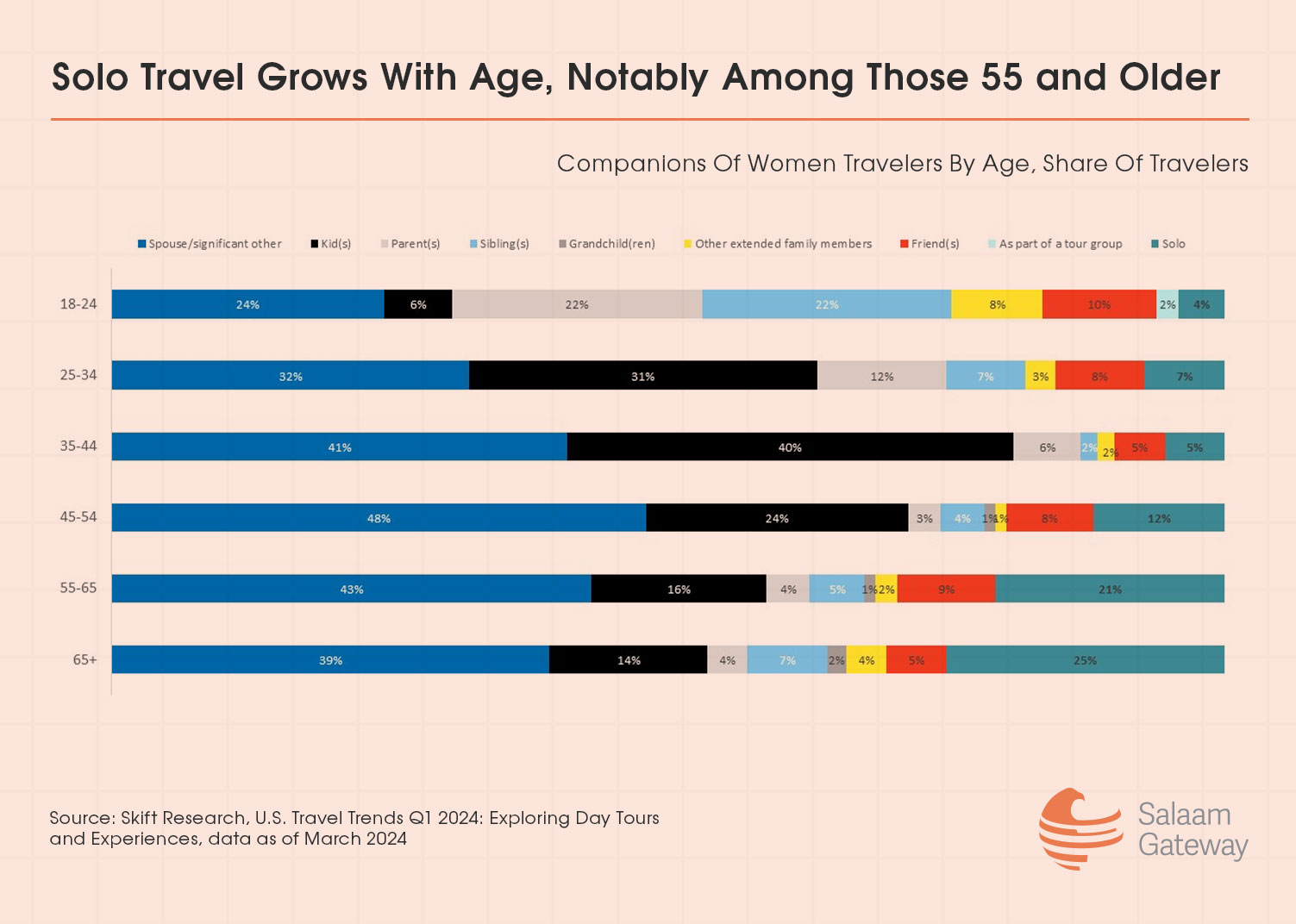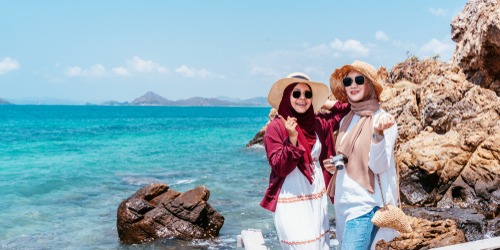How Muslim women-friendly travel is gaining ground
For many Muslim women, planning a holiday goes far beyond booking flights and hotels. It often involves a meticulous checklist - scouring restaurant for halal or vegetarian options, locating mosques that offer prayer spaces for women, and conducting safety checks on the destination.
Whether wearing a hijab or a niqab, or hoping to swim in a burkini, the question isn't just where to go, but whether they’ll be welcomed when they do.
But the landscape is shifting, driven by a wave of grassroots initiatives that are actively reshaping the travel experience for Muslim women.
Life-changing expeditions
One of the most influential players in this space is The Wanderlust Women, a hiking and adventure group founded in 2020 by Amira Patel. What began as a response to the lack of representation of Muslim women in outdoor spaces has evolved into a global movement.
“That inspired me to create a safe, empowering space for Muslim women to reconnect - not just with nature, but with themselves and their Creator as a Muslim,” Patel tells Salaam Gateway.
Since its inception, the group has grown beyond local hiking trails in the UK to lead international expeditions. Its trips have taken women to the mountains of northern Pakistan and Morocco, the Arctic wilderness of Svalbard, horseback trails in Kyrgyzstan, and even safaris across Tanzania.
“Women are looking for more than just a holiday. These are not holidays; these are life-changing experiences, expeditions,” says Patel. “They want healing, connection, and community.”
Although social media has helped amplify their reach, she credits their rapid growth primarily to word of mouth. “The transformation women experience on these trips speaks for itself - they come back changed, and they share that.”
The Wanderlust Women intentionally selects destinations that are either Muslim-majority or culturally sensitive, offering halal meals, prayer breaks, and activities like trekking and scuba diving, all complemented by spiritual practices such as dhikr circles and Quran journaling.
Places like Morocco, Indonesia, Malaysia, Zanzibar, and parts of Central Asia have become favorites for their blend of natural beauty and cultural familiarity.
Global explorers bound by faith
Another major player leading the charge is the Muslim Women Travel Group (MWTG). Founded in 2015, the initiative started as a modest Facebook group and is now a flourishing global network, connecting tens of thousands of like-minded women the world over.
Sadia Ramzan, founder and director of MWTG, says the idea was deeply personal.
“As a single mother with a deep love for travel, I often found it difficult to find someone to travel with who shared my values. I was fortunate to have my sister accompany me on many trips, but I quickly realized not everyone has that support system," Ramzan tells Salaam Gateway.
“Our mission is to make the world feel more open, accessible, and safe for Muslim women, without requiring them to compromise their faith, modesty, or cultural identity. We’ve created a space where you can belong, explore, and travel confidently.”
The trend has gathered pace. The community includes over 50,000 members on its private Facebook group, nearly 30,000 Instagram followers, 11,000 TikTok followers, and 5,000 newsletter subscribers. Their trips, once limited to a few UK-based getaways, now span Asia, Africa, the Middle East, Europe, and even Antarctica.
“In 2023 and 2024 alone, we sold out trips to Mongolia, Japan and South Korea, Jordan, and Thailand - some in under 48 hours,” Ramzan says. “This growth has been fueled by word of mouth, authentic storytelling, and a growing recognition that Muslim women want and deserve culturally conscious, empowering travel experiences.”
What Muslim women travelers want
An estimated 82% of women are known to make majority of travel decisions globally, according to Skift Research. But the expectations of Muslim women travelers go far beyond the basics.
“Today’s Muslim women travelers are looking for more than just halal food and a prayer mat; they’re seeking representation, safety, authenticity, and the freedom to be themselves while exploring the world,” says Ramzan.
This translates into thoughtful itineraries that include female-only spas, dry hotels, and even skydiving with female instructors. Trips organized by MWTG are led by experienced women and often employ female staff across the entire supply chain.

“We work with women where possible throughout our supply chain, not only because it's our preference, but because we want to give back to local women in tourism, especially in regions where they are underpaid or overlooked,” Ramzan adds.
Shifting perceptions
Despite the momentum, Muslim-friendly adventure travel faces significant hurdles, from logistical gaps to entrenched stereotypes.
“Finding local guides, accommodation, and transport that align with our values isn’t always easy, especially in remote regions,” says Patel.
“Sometimes people don’t understand why a group of Muslim women want to climb a mountain or travel alone. But with time, patience, and community-building, we work to shift that perspective.”
Ramzan also points to the challenges posed by a travel industry that has yet to fully embrace the diversity within Muslim communities.
“There’s a lingering stereotype that Muslim women don’t travel or aren’t adventurous, which couldn’t be further from the truth,” she says.
“Our community includes women who have broken records climbing mountains, walked on the world’s seventh continent, camped on icebergs, and kayaked through deltas in deadly waters.”
Addressing access issues in less familiar destinations is also an ongoing challenge. “From negotiating with hotels to provide private spa or pool access, to ensuring halal meals in remote regions, it often requires extra planning and relationship-building on the ground,” says Ramzan.
MWTG works directly with local partners to educate them and build mutually respectful relationships, making each experience more seamless for future groups.
Affordability coupled with the Gen Z factor
Affordability is central to this movement. According to the Mastercard-CrescentRating Muslim Gen Z Travel Report 2023, 53% of Gen Z Muslim women aim to spend under $150 per day while traveling.
Companies like Sisters Getaway, which has hosted more than 600 women on over 40 retreats in Zanzibar, Morocco, and Spain, offer monthly installment plans to make travel more accessible. Similarly, MWTG’s flexible payment options have made bucket-list destinations like Japan and Antarctica within reach.
Looking ahead, Ramzan hopes to create a social enterprise arm that offers subsidized trips or bursary-style support for women who may otherwise never have the opportunity to travel.
As Muslim women-focused travel companies continue to expand and redefine the industry, the message is clear: this is more than a trend - it’s a transformative movement that is aiming to make tourism more inclusive, adventurous, and unapologetically faith-driven.
